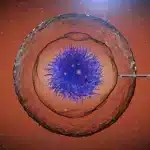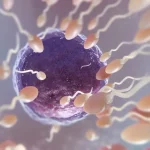
Introduction
As assisted reproductive technologies (ART) like in vitro fertilization (IVF) become increasingly prevalent, many patients find themselves with surplus embryos, fertilized eggs that are not immediately used in a pregnancy attempt. According to the Centers for Disease Control and Prevention (CDC), approximately 1.5 million embryos were cryopreserved in the United States as of 2019. These embryos are typically stored for future use but may remain unused for various reasons. This article provides an in-depth exploration of the options available for the disposition of surplus embryos, including donation, research, storage, and disposal, with a focus on adherence to guidelines set forth by the American Society for Reproductive Medicine (ASRM) and the U.S. Food and Drug Administration (FDA).
Understanding Surplus Embryos
During an IVF cycle, multiple embryos are often created to increase the chances of a successful pregnancy. Not all embryos are transferred into the uterus; some are cryopreserved for future use. Over time, patients may decide not to use these embryos, leading to the question: What should be done with them? The ASRM provides guidance on this matter, stating that patients have several options: continued storage, donation to other individuals or couples, donation for research, or disposal.
Option 1: Continued Storage
Many patients choose to keep their embryos in storage, maintaining the possibility of future use. This option provides flexibility but comes with considerations:
- Cost: Storage fees can accumulate over time. For example, the Strong Fertility Center in Rochester, New York, charges $600 for the first year, $1,200 for the second year, and up to $5,000 for the fifth year and beyond. ReproTech, a national storage provider, offers rates ranging from $450 for one year to $3,140 for ten years.
- Emotional Impact: The decision to keep embryos stored indefinitely can be emotionally taxing, especially if the likelihood of future use is low.
- Legal Considerations: Some jurisdictions have regulations regarding the maximum duration embryos can be stored. For instance, the FDA requires that records about each donor (screening and test results) be maintained for at least 10 years; some states may require records for longer.
Option 2: Donation to Other Individuals or Couples
Donating embryos to others seeking to build a family is a generous option that can bring hope to those facing infertility. Key aspects include:
- Screening and Matching: Both donors and recipients typically undergo medical and psychological evaluations to ensure compatibility and readiness. The ASRM recommends that embryo donors provide a medical and genetic history and undergo infectious-disease testing.
- Legal Agreements: Clear legal contracts are essential to outline parental rights and responsibilities, ensuring all parties understand the implications.
- Emotional Considerations: Donors should reflect on the emotional impact of having a genetic child raised by another family.
The ASRM emphasizes the importance of informed consent, psychological counseling, and proper documentation in the embryo donation process.
Option 3: Donation for Research
Embryos can be donated for scientific research, contributing to advancements in medical knowledge and treatments. Considerations include:
- Informed Consent: Donors must provide explicit consent, understanding how the embryos will be used in research.
- Ethical Guidelines: Research institutions follow strict ethical protocols to ensure respectful and appropriate use of donated embryos.
- Impact: Donated embryos have been instrumental in stem cell research and understanding human development.
The ASRM provides guidance on the ethical considerations and regulatory requirements for embryo donation for research purposes.
Option 4: Disposal
Choosing to dispose of surplus embryos is a deep personal decision. Methods and considerations include:
- Clinic Protocols: Fertility clinics have specific procedures for the respectful disposal of embryos, often involving thawing and discarding in a manner consistent with medical waste regulations.
- Ceremonial Options: Some individuals opt for a ceremonial approach, such as a symbolic ritual or memorial, to find closure.
- Legal and Ethical Aspects: Laws regarding embryo disposal vary by region, and individuals should consult with their clinic and legal advisors to ensure compliance.
The ASRM advises that programs and facilities create and enforce written policies addressing the designation, retention, use, and disposal of unclaimed embryos.
Making the Decision
Deciding the fate of surplus embryos involves emotional, ethical, and practical considerations. Here are the steps to guide the process:
- Reflect on Personal Values: Consider your beliefs, future family plans, and emotional readiness.
- Consult Professionals: Speak with fertility specialists, counselors, and legal advisors to understand the implications of each option.
- Review Legal Agreements: Ensure all decisions are documented and comply with local laws and clinical policies.
- Communicate with Partners: If applicable, discuss options thoroughly with your partner to reach a mutual decision.
The ASRM emphasizes the importance of informed decision-making and recommends that patients receive counseling to navigate this complex process.
Conclusion
Surplus embryos present complex choices that intertwine personal values, ethical considerations, and legal implications. Whether choosing to continue storage, donate to others, contribute to research, or opt for disposal, it’s essential to make informed decisions that align with your beliefs and circumstances. Engaging with professionals and reflecting deeply can aid in navigating this challenging aspect of the IVF journey.
Note: This article is intended for informational purposes and does not substitute professional medical or legal advice. Always consult with qualified professionals when making decisions regarding surplus embryos.

Dr. Kulsoom Baloch
Dr. Kulsoom Baloch is a dedicated donor coordinator at Indian Egg Donors, leveraging her extensive background in medicine and public health. She holds an MBBS from Ziauddin University, Pakistan, and an MPH from Hofstra University, New York. With three years of clinical experience at prominent hospitals in Karachi, Pakistan, Dr. Baloch has honed her skills in patient care and medical research.





